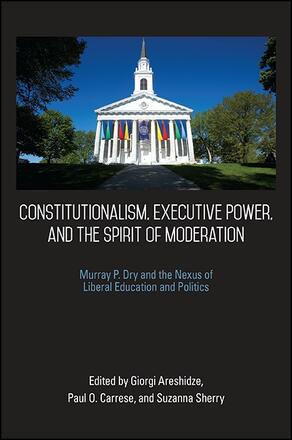
Constitutionalism, Executive Power, and the Spirit of Moderation
Murray P. Dry and the Nexus of Liberal Education and Politics
Alternative formats available from:
Leading scholars and legal practitioners explore constitutional, legal, and philosophical topics.
Description
In Constitutionalism, Executive Power, and the Spirit of Moderation, contributors ranging from scholars to practitioners in the federal executive and judicial branches blend philosophical and political modes of analysis to examine a variety of constitutional, legal, and philosophical topics. Part 1, "The Role of Courts in Constitutional Democracy," analyzes the proper functions and limits of the judiciary and judicial decision making in constitutional government. Part 2, "Law and Executive Authority," reflects on the tensions between constitutionalism and presidential leadership in both domestic and international arenas. Part 3, "Liberal Education, Constitutionalism, and Philosophic Moderation," shifts the focus to the relationship between constitutionalism and political philosophy, and especially to the modern modes of philosophy that most directly influenced the American Founders. A valuable resource for specialists, the book also will be of use in political science and law school classes.
Giorgi Areshidze is Assistant Professor of Government at Claremont McKenna College. Paul O. Carrese is Professor and Director of the US Air Force Academy Scholars Program and the author of The Cloaking of Power: Montesquieu, Blackstone, and the Rise of Judicial Activism. Suzanna Sherry is Herman O. Loewenstein Professor of Law at Vanderbilt University. Her books include Judgment Calls: Principle and Politics in Constitutional Law (coauthored with Daniel A. Farber).
Reviews
"Each essay is thoughtful and well-argued. " — CHOICE
". ..highly recommended for college library Judicial Studies collections. " — Midwest Book Review